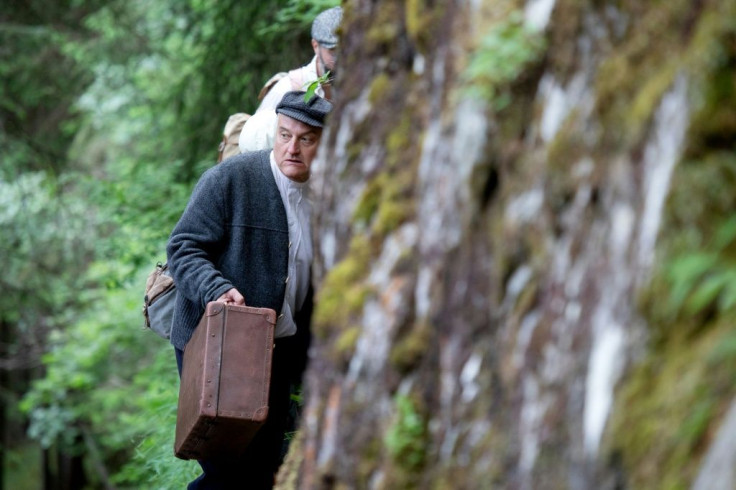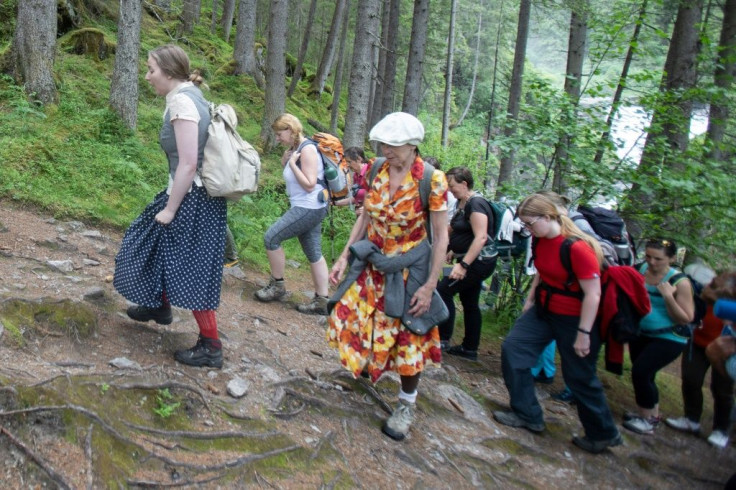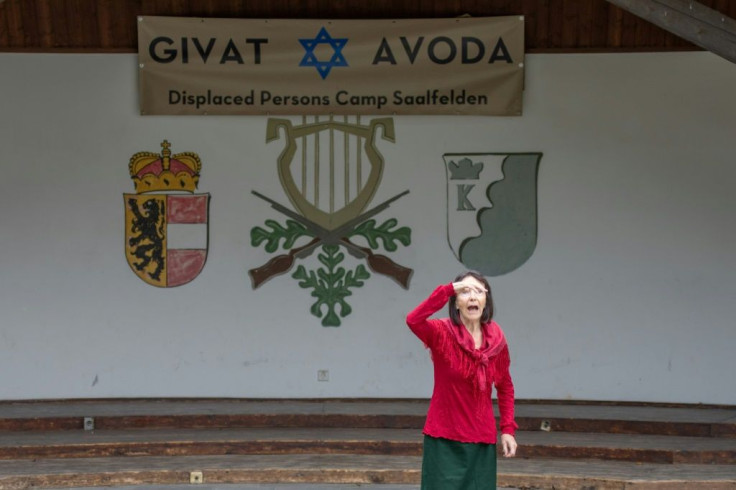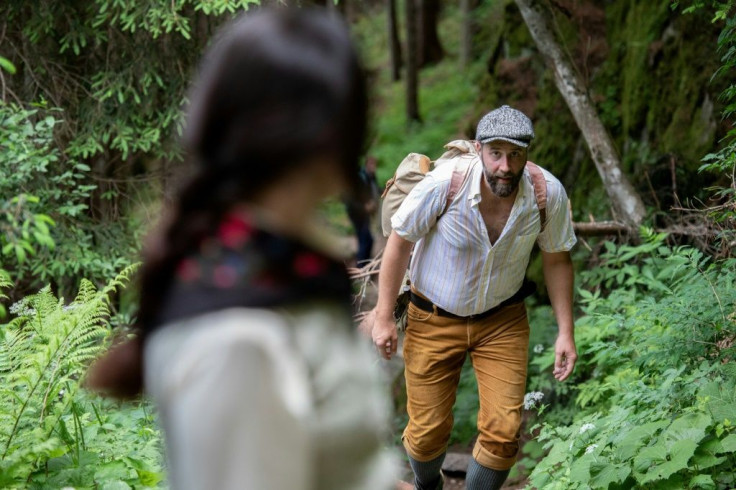In The Austrian Alps, Post-Holocaust Escape Is Re-enacted
Sidestepping a roaring waterfall and stumbling over rocks, an Austrian amateur theatre group re-enacts the treacherous Alpine escape of thousands of Jews seeking a new home after the Holocaust.
Surrounded by Austria's snow-capped peaks, two dozen spectators hike alongside lay actors who perform scenes based on the real experiences of as many as 8,000 Holocaust survivors who traversed the Alps to reach the Italian harbour of Genoa, where they hoped to board ships to Palestine in 1947.
"The special thing about the play is that you experience it and you get an idea of what people went through back then," says actor Celine Nerbl of the Pinzgau region group Teatro Caprile, which has been staging the theatre hike in summer.

After the end of World War II, thousands remained stuck in camps for displaced Holocaust survivors in countries such as Austria, with little hope of starting a new life while anti-Semitism remained so deeply entrenched.
The Jewish flight aid organisation Bricha smuggled groups of as many as 200 people on trucks via the camp "Givat Avoda", which translates to "Hill of Labour", in the Austrian town of Saalfelden, to Krimml from where they had to continue by foot.
It is here that the re-enactment begins, and it is an emotional, eight-hour-long hike for participants.

"You can feel yourself in there," says Austrian Marion Mikenda, a local who participated in the guided trek with her father.

"Nobody wanted them, even after the war, so they had to flee," says historian Rudolf Leo, who grew up in Salzburg province and who remembers his mother telling him about the 1947 Jewish exodus.
Back then, British allied forces prevented Jews from fleeing to British-controlled Palestine, making the back country mountain pass of Krimml their only escape route.
"I always thought she was wrong about the year," Leo says of his mother's memories. "But, no, she was completely right."
Physical exertion helps the audience imagine what the refugees experienced, says author and director Andreas Kosek.

He set the scenes along the original path: in a dense spruce forest, a lush meadow where cows graze, and inside a hut which, at an elevation of over 1,600 metres (5,250 feet), had offered the Jewish refugees shelter and a meal.
"I was here with people who said 'We never imagined there were mountains this steep'," says Celine Nerbl's husband Hans, who accompanies the group as a hiking guide.
The main difference is that today's hikers are well-equipped and travel by day.
In 1947, the Jewish refugees were at times forced to hike in complete darkness, some carrying their children and hoping not to be spotted.
The history of the displaced persons' camp and the escape of Holocaust survivors had long been forgotten, but they are slowly being resurrected in Austria. In 2007, the Alpine Peace Crossing association was founded to commemorate the post-war exodus with an annual hike.
Austrian President Alexander Van der Bellen participated in the hike in 2017, and while it could only be held virtually due to the pandemic last year, hundreds of people once again followed in the Holocaust survivors' footsteps this summer.
Thinking of what happened back then, Hans says he sees a lot of parallels to refugees migrating today.
"The reasons for flight have stayed the same, and so has the attitude of countries who don't want to take anyone in," he says.
As for the hikes, actor Nerbl says descendants of survivors have even travelled by plane from Israel to Austria.
"They want to walk with us, and that's often very, very moving," she notes, adding that she remembers the son of two survivors who broke down and cried.
His parents, he told Nerbl, had made the journey with the few belongings they could carry -- and the hope for a new life.
© Copyright AFP {{Year}}. All rights reserved.





















